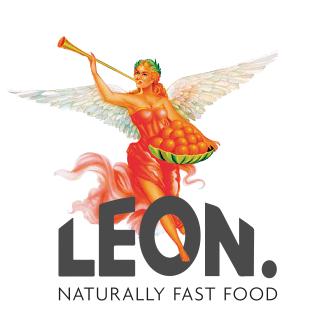LEON launches carbon-neutral burgers and fries
January 25, 2021Naturally Fast Food brand LEON has become the first to serve a carbon-neutral burger and fries range in its more than 60 locations across the UK . For this, LEON is measuring, reducing and offsetting the carbon footprint of their burgers and fries, with support from ClimatePartner.
We measure the CO2 emissions from the whole supply chain which includes all LEON’s ingredients, any packaging used and its waste, as well as emissions from preparations in their restaurant kitchens. With our support, the resulting carbon footprint is offset with rainforest conservation and afforestation projects in Latin America, as well as a progressive new afforestation project in the UK.
Kirsty Saddler, Values and Sustainability Director at LEON said, “Being kind to the planet has been at the heart of LEON since we launched in 2004. We are working to reduce our emissions and achieve a net zero target by 2030, offsetting unavoidable emissions, with reforestation and afforestation projects, is an important commitment for us as we work towards that target.”
Emilien Hoet, Head of ClimatePartner UK, adds: “It’s a real privilege to be supporting such a values-driven brand on their sustainability journey, taking concrete climate action today. Enabling their customers to make more sustainable menu choices is very much a first step of a holistic sustainability strategy. For Leon to achieve Climate Neutrality for its most material menu items amidst a pandemic that has severely affected the restaurant industry sends a strong message that tackling climate change is everyone’s responsibility.”
LEON is already taking several measures to reduce emissions as much as possible. The company uses 100% green electricity (no gas) in its kitchens supplied by Ecotricity. In addition to its climate neutral menu offering, LEON’s popular LOVe burger is now made with a new recipe pea protein patty from plant-based producer Meatless Farm, which has also helped the menu item have a lower carbon impact. It is also one of the only major fast food businesses to exclude high carbon meats such as beef from the menu and sources 75% of ingredients from the UK, avoiding unnecessary transport-related emissions where possible.
Kirsty Saddler: “Working with ClimatePartner has been ideal for LEON because they are as dynamic and entrepreneurial in their thinking as we are, which is refreshing when faced with tasks such as carbon footprint analysis and long-term climate action strategies. These tasks can appear daunting and ones that may be challenging to engage your whole business with, but ClimatePartner take an energetic and straightforward approach which helps get the work done well and in a way that all stakeholders can engage with. We highly recommend them as a partner that will help you, whatever stage your business is at, to make a positive difference."
Net Zero by 2030
The launch of the climate neutral products is a great step for the business as it aims to reach net zero by 2030, by reporting on and reducing greenhouse gas emissions in line with science and furthering work to support biodiversity. This is aligned with the Council for Sustainable Business commitments which the brand signed up to in June 2020. Leon will be releasing a more detailed roadmap for carbon reduction and its Net Zero carbon emissions commitment later this year.
Further sustainable menu options include LEON’s triple-certified coffee, which saves one metre squared of rainforest for every seven cups sold, due to its World Land Trust Certification. Also, most recently, LEON launched a Vegan Subscription Service and vegan LOVe burger kits for home delivery, which are also carbon neutral. In addition, Nemi teas are also new to LEON’s menu, a responsible brand with plastic free teabags and biodegradable packaging, their products are also triple certified as Organic, Fairtrade and Rainforest-Alliance.
More information is available at https://leon.co/presents/read/the-future-of-fast-food-is-better-for-the-planet/
